TOPIC 4 : ADJUDICATING INTELLECTUAL PROPERTY IN INVESTOR - STATE DISPUTE SETTLEMENT PROCEDURES: FUNCTIONING AND CHALLENGES
M. Robert Howse
Professor, New York University School of Law, United States of America
M. Pilar Montero
Professor of Commercial Law and Director, Magister Lvcentinvs, University of Alicante, Spain
M. Xavier Seuba
This panel will review new challenges raised by the adjudication of IP disputes in investor-state tribunals. In particular, it will give an overview of the functioning and principles guiding investor-state arbitrations and highlight potential issues that can arise for the intellectual property regime. This panel will also address the issue of jurisdictional conflicts in the light of recent cases on IP and investment protection.
Durée :
XIXth EIPIN Congress - Enforcing intellectual property in trade and investment agreements
Du au
Parlement européen, Strasbourg
Université de Strasbourg - CEIPI - Centre d'études internationales de la propriété intellectuelle
What Safeguards for its Social Function ?
International trade and investment agreements increasingly include provisions on the protection of intellectual property. Recent decisions of arbitral tribunals shed light on this interaction between intellectual property and investment law raising important questions about the coexistence of the different bodies of law and the competence of various fora for adjudicating IP-related disputes.
This conference will critically examine the present landscape of trade and investment agreements, the legitimacy of current practices with regard to the social function of intellectual property rights and the likely avenues for future developments in the field. The latest cases will be discussed not only in the context of investor-state dispute settlement but also in the framework of the World Trade Organisation mechanisms. The interaction with fundamental rights and ethics will be explored, as well as some specific implications for the EU. The ongoing negotiations with regards to the CETA and the TTIP will serve as a common thread for the discussions.
Producteur : Université de Strasbourg
Réalisateur : Université de Strasbourg
Module 2 : Safeguarding the social function when adjudicating ip, trade and investment protection
TOPIC 4 : ADJUDICATING INTELLECTUAL PROPERTY IN INVESTOR - STATE DISPUTE SETTLEMENT PROCEDURES: FUNCTIONING AND CHALLENGES
M. Robert Howse
Professor, New York University School of Law, United States of America
M. Pilar Montero
Professor of Commercial Law and Director, Magister Lvcentinvs, University of Alicante, Spain
M. Xavier Seuba
This panel will review new challenges raised by the adjudication of IP disputes in investor-state tribunals. In particular, it will give an overview of the functioning and principles guiding investor-state arbitrations and highlight potential issues that can arise for the intellectual property regime. This panel will also address the issue of jurisdictional conflicts in the light of recent cases on IP and investment protection.
TOPIC 5 : THE ENFORCEMENT OF IP BY THE WORLD TRADE ORGANISATION PANEL: COMPARATIVE VIEWS
Hannu Wager
Counsellor, World Trade Organisation, Geneva, Switzerland
Mme Rochelle Dreyfuss
Professor and Co-Director, Engelberg Center on Innovation Law & Policy, New York University, United States of America
M. Enrico Bonadio
Senior Lecturer, City University, London, United Kingdom
M. Xavier Seuba
This panel will discuss how the World Trade Organisation Dispute Settlement Body is adjudicating IP cases under trade law. The panellists will focus on cases involving IP with the aim of comparing the disputes at the World Trade Organisation with other international disputes on similar matters. The speakers will address the question of potential multiplication of the same or similar disputes in front of different dispute settlement mechanisms, and the issue of forum shopping that can arise.
TOPIC 6 : WHAT ROLE FOR HUMAN RIGHTS AND ETHICS IN IP, INVESTMENT AND TRADE DISPUTES?
M. Tuomas Mylly
Professor, University of Turku, Finland
M. Thomas Cottier
Emeritus Professor of Law, University of Bern, Switzerland
M. Giancarlo Frosio
Senior Lecturer and Researcher, CEIPI, University of rasbourg, France
This panel will deal with challenges for human rights resulting in the treatment of IP as an investment. For example, trademarks have been used in the context of investment disputes with an aim to constrain public health regulation (Philip Morris). Therefore, some of the questions that will be addressed in this panel include: Have arbitral tribunals taken human rights considerations (e.g. public health, non-discrimination, due process) into account when adjudicating IP-related cases? How can the tensions between IP and human rights law be resolved in the context of investment law proceedings? Are investment tribunals well-suited to resolve IP / human rights tensions ?
TOPIC 7: THE COMPLIANCE OF INVESTMENT PROTECTION MECHANISMS IN FREE TRADE AGREEMENTS WITH EU LAW (INCLUDING THE COMPETENCY OF THE EU AND AUTHORITY OF THE CJEU) AND POSSIBLE CONSEQUENCES FOR IP PROTECTION
Szilard Gaspar-Szilagyi
Postdoctoral Fellow, University of Oslo, Norway
M. Rainer Geiger
Of Counsel, Sybarius Avocats, Brussels, Belgium
Mme Ana Ramalho
Assistant Professor of Intellectual Property Law, Maastricht University, Netherlands
This panel will focus on three closely connected issues. First, the compliance of investment protection mechanisms included in recent Free Trade Agreements, such as CETA or TTIP, with EU primary law will be scrutinized. In this sense, the panel will also address the possible implications for IP laws in Europe derived from the IP provisions of those agreements. Second, the scope of competence of the EU to enter into negotiations and be party to the agreements will be assessed: does the EU have exclusive competence or is the competence shared with the Member States? Third, the authority of the CJEU and its recent decisions regarding the free trade agreements including investment protection will be analysed.
TOPIC 8 : TOWARDS AN INVESTMENT COURT SYSTEM FOR THE EU : CURRENT PROPOSALS AND POSSIBLE IMPLICATIONS FOR IP ENFORCEMENT
Mme Catherine Kessedjian
Professor Emeritus, University Paris II - Panthéon Assas, and Arbitrator/Mediator, France
Kamalinne Pinitpuvadol
Executive Director, International Institute for Trade and Development (ITD), Bangkok, Thailand
M. Josef Drexl
Director, Max Planck Institute for Innovation and Competition, Munich, Germany
This panel provides an overview of the current state of affairs in relation to the establishment of a permanent court in the EU to hear investment disputes. In particular, the court’s potential strengths and weaknesses will be assessed in light of the EU’s commitment to include the investment negotiations with its foreign trading partners under such a system. More generally, the panel will address the possible consequences of submitting IP disputes to such an investment court for the innovation environment in Europe.
FINAL ROUNDTABLE : CONTROVERSIES AND POLICY ISSUES ARISING FROM IP AND ISDS IN THE EU : A CLOSER LOOK AT THE CETA AND THE TTIP
M. Pedro Velasco Martins
Member of the Cabinet of Commissioner Malmström, European Commission, Brussels, Belgium
Mme Julia Reda
Member of the European Parliament, Brussels, Belgium
M. Daniel Segoin
Legal advisor and French agent to the CJEU in the Legal Service of the French Ministry for Foreign Affairs, Paris, France
M. Christophe Geiger
Professeur à l’Université de Strasbourg et Directeur général du CEIPI. Professor, Director General and Director of the Research Department of the Centre for International Intellectual Property Studies (CEIPI) at the University of Strasbourg (France) Christophe Geiger is Professor of Law, Director General and Director of the Research Department of the Centre for International Intellectual Property Studies (CEIPI) at the University of Strasbourg (France). In addition, he is affiliated senior researcher at the Max Planck Institute for Innovation and Competition in Munich (Germany) as well as Spangenberg Fellow at the Spangenberg Center for Law, Technology & the Arts, Case Western Reserve University School of Law in Cleveland (US), and has been invited to teach as visiting professor in several universities. He specializes in national, European, international and comparative intellectual property law, has drafted reports for the European institutions and acts as external expert for the European Parliament and the Office for Harmonization in the Internal Market (OHIM). He is also General Editor of the Collection of the CEIPI published by LexisNexis, co-editor of the EIPIN series published by Edward Elgar, co-editor of the CEIPI-ICTSD Publication Series on “Global Perspectives and Challenges for the Intellectual Property System” and member of the editorial board of several journals on IP law. He has published numerous articles as well as authored and edited many volumes in this field, the most recent being “Criminal Enforcement of Intellectual Property: A Handbook of Contemporary Research” (2012), “Constructing European Intellectual Property: Achievements and New Perspectives” (2013), “Research Handbook on Human Rights and Intellectual Property” (2015) with Edward Elgar, and “What Patent Law for the European Union?” (2013), “The Contribution of Case Law to the Construction of Intellectual Property in Europe” (2013, in French); “Intellectual Property Law in a Globalized World” (with Caroline Rodà, 2014), with LexisNexis.
This panel, in the form of a final roundtable, will include a discussion of controversies and policy issues arising from the utilisation of the investor-state dispute settlement in IP cases in the European context. The focus will be on the CETA and on the current negotiations of the TTIP. The panel will gather prominent personalities representing academics, practitioners and policy makers to discuss the main challenges and issues arising from these agreements.

